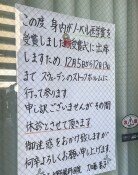Taking Out the Word Anti-Communism from the Law of Residents Association from Five Northern Provinces
Taking Out the Word Anti-Communism from the Law of Residents Association from Five Northern Provinces
Posted December. 20, 2004 23:03,
The expression anti-communism is at the center of mounting tension between the Central Association of People from the Five Provinces of North Korea, which is an organization of South Korean residents who left their hometowns in the North during the Korean War, and the Committee of the Five Provinces of North Korea, another organization assisting the Association. The tension arose as it was belatedly reported that the Ministry of Government Administration and Home Affairs submitted to the National Assembly a revision of a special law on five provinces of North Korea with the expression, promotion of anti-communism, taken out.
The special law stipulating the composition and work scope of the Committee of Five Provinces of North Korea was enacted in 1962.
After being written by the committee itself, the revision was fine-tuned by the Ministry of Government Administration and Home Affairs, discussed in a Cabinet meeting, and now is pending before the Government Administration and Local Autonomy Committee.
The revision completely excluded items and expressions previously stated in Clause 2, Article 4, enlightenment and propaganda, like encouragement of anti-communism, promotion of national policy and planning and implementation of pacification activity, and ideological guidance of North Korean refugees. Instead, it added articles about support and management of South Korean residents from the Northern five provinces and assistance for North Korean defectors.
In response, the Central Association of People from Five North Korean Provinces, an umbrella organization of some 1,000 such association, protested, saying that the revision has lost fairness because it was written without going through the process of collecting opinions like public hearings and demanded the scrapping of the revision.
Kim Hee-seung (72), chief of bureau of the Association, said that elimination of the term anti-communism has a significant meaning for the eight million people who fled to the South to escape the Communist Party during the Korean War, and that the Committee of Five Provinces of North Korea should apologize for unanimously rushing to revise the law.
The Association is collecting signatures from South Korean residents from the North to push forward the abolition of the revision.
Some 20 mayors and governors of Pyeonganbuk-do, members of the Committee, handed in their resignations to a secretary and decided to resign en masse if the revision is approved in the National Assembly.
In response, the Committee said that it is just that they revised the special law to fit the new reality of inter-Korean exchange and cooperation in the era of mutual prosperity and peaceful co-existence.
The head of the Committee, Ko Soon-ho (67) pointed out that the special law is not binding to those who fled from the North, but governs composition and work scope of the organization, and added that the committee also had a discussion several times with agencies related to unification policies, including the National Intelligence Service and the Unification Ministry, at the legislation stage.
zsh75@donga.com







